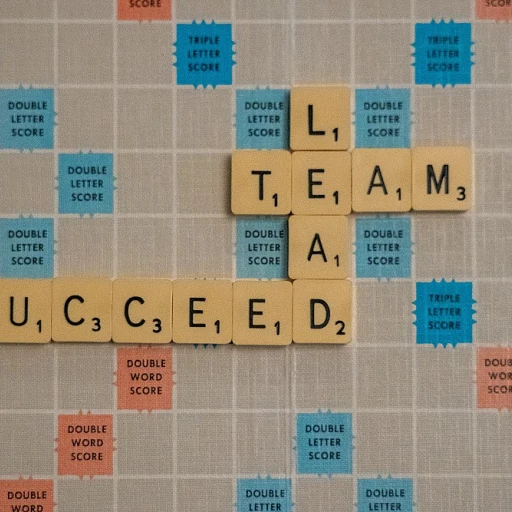
Understanding DEI in the Hiring Process
Recognizing the Role of DEI in Hiring
Diversity, Equity, and Inclusion (DEI) have progressively become fundamental components within the hiring process. Companies today recognize the need to not only attract but also retain diverse talent to build a more inclusive workplace. DEI isn't just about meeting quotas or checking boxes; it's about embedding these practices into every stage of the recruitment process to enhance the candidate experience.
Setting the Foundation with DEI Principles
The initial step in integrating DEI into the hiring process involves understanding its core principles — diversity focuses on ensuring variety within the talent pool, equity emphasizes fair treatment and access to opportunities, and inclusion ensures that diverse employees feel valued and accepted. By weaving these principles into the fabric of the recruitment strategy, companies lay a robust foundation for attracting top talent.
Addressing Unconscious Bias
One of the key challenges in embedding DEI is confronting unconscious bias in hiring practices. It is crucial for companies to implement training and tools to mitigate these biases, fostering a more equitable recruitment environment. The thoughtful use of data can help identify and address potential biases, creating a more fair experience for every candidate.
Communicating DEI Values to Candidates
Job descriptions are an essential touchpoint during the recruitment process, serving as an opportunity to communicate your company's commitment to DEI. By ensuring that job ads reflect diversity and inclusion values, companies can attract a broader pool of candidates. Moreover, fostering a company culture that champions DEI can enhance employer branding, appealing to candidates who prioritize working in an inclusive organization.
For a deeper dive into how companies are embedding DEI into their recruitment strategies and measuring its impact on candidate experience, explore more insights in revolutionizing employee experience management (https://www.the-innovative-chro.com/blog/revolutionizing-employee-experience-management).
The Impact of DEI on Candidate Experience
Influence on Candidate Journey
The journey a candidate undergoes during the hiring process can be significantly influenced by the presence of diversity, equity, and inclusion (DEI) initiatives. More than ever, candidates are attentive to how a company positions itself in terms of DEI commitment. These factors shape not only the initial interests in job descriptions but also influence perceptions throughout the recruitment process.
Bias Reduction Through DEI
Including DEI practices in recruitment can help to minimize unconscious bias, leading to a more equitable and inclusive hiring process. Organizations can address biases that might unconsciously creep into conversations or decisions by employing structured interviews and data-driven selection protocols. This approach ensures that diverse talent is evaluated fairly and uniformly, enriching the candidate experience by promoting equity inclusion across all evaluation stages.
Fostering an Inclusive Environment
The presence of DEI in a company's hiring practices sends a potent message about its company culture. Recruitment strategies designed with diversity and inclusion principles present the company as an inclusive workplace, potentially attracting top talent interested in working within such environments. This not only enhances the recruitment experience for candidates but also aids in refining employer branding.
Response and Engagement
DEI initiatives create platforms for candidates to ask questions and receive transparent responses regarding the company's commitment to diversity inclusion. Such openness is not only crucial for building trust but also enhances the candidate experience by providing them with a sense of belonging from the onset. By emphasizing candidate engagement, companies can ensure a more comfortable and authentic exchange during the recruitment process.
For a deeper understanding of how advanced technologies can be leveraged to evaluate and refine employee development, you can refer to evaluating employee development with AI coaching.
Innovative DEI Practices in Recruitment
Innovative Approaches to DEI in Recruitment
Incorporating diversity, equity, and inclusion (DEI) into the recruitment process is not just about ticking boxes; it's about creating a more inclusive workplace that attracts diverse talent. Companies are increasingly adopting innovative DEI practices to enhance the candidate experience and ensure a fair hiring process.
One of the most effective strategies is the use of transformation labs to identify and mitigate unconscious bias. These labs help companies analyze their recruitment data to uncover patterns that may indicate bias, allowing them to adjust their hiring practices accordingly.
Another innovative practice is the redesign of job descriptions to be more inclusive. By using gender-neutral language and focusing on essential skills rather than specific qualifications, companies can attract a broader range of candidates. This approach not only diversifies the talent pool but also aligns with the principles of equity inclusion.
Social media platforms are also playing a crucial role in DEI recruitment. Companies are leveraging these platforms to showcase their commitment to diversity and inclusion, enhancing their employer branding. By sharing stories and testimonials from diverse employees, companies can create a more relatable and appealing image for potential candidates.
Moreover, some organizations are implementing blind recruitment processes, where candidate information such as names and educational backgrounds are removed from applications. This helps to reduce bias and focus on the skills and experiences that truly matter for the job.
Lastly, continuous training on DEI for hiring managers is essential. Providing regular workshops and resources ensures that those involved in the recruitment process are equipped to make unbiased decisions and foster an inclusive company culture.
These innovative DEI practices not only improve the candidate experience but also contribute to building a more diverse and inclusive workplace. As companies continue to evolve their recruitment strategies, the focus on DEI will remain a critical component in attracting and retaining top talent.
Measuring the Success of DEI Initiatives
Evaluating the Effectiveness of Diversity, Equity, and Inclusion Strategies
To gauge the success of DEI initiatives in the recruitment process, companies must first establish clear objectives and metrics for measurement. This ensures that they can truly assess how effective their strategies are in creating a more inclusive workplace and enhancing the candidate experience.
Utilizing data is key in this process. By analyzing hiring and recruitment patterns, companies can identify any existing gaps and opportunities for improvement. For instance, scrutinizing how diverse the talent pool is or the retention rates of diverse hires can offer valuable insights into the strengths and weaknesses of current practices.
Surveys and feedback from candidates themselves are also invaluable resources. Asking relevant questions during and after the hiring process can provide direct insight into potential bias or areas where the experience may fall short of being inclusive. Engaging candidates in the process not only offers them a voice but also helps in refining employer branding and the overall culture of diversity inclusion.
Moreover, tracking changes and outcomes over time is crucial. Are job descriptions becoming more inclusive? Are more diverse candidates applying and being hired? Are companies seeing a significant positive shift within their company culture? Implementing a robust system for evaluation can help answer these questions and indicate progress towards a more diverse and inclusive hiring environment.
To stay ahead, companies should also benchmark their DEI efforts against industry standards and adjust policies to reflect evolving trends and best practices in talent acquisition. By taking these steps, companies not only enhance the candidate experience but also strengthen their position as an employer of choice for top talent.
Challenges in Implementing DEI Strategies
The Hurdles in Establishing DEI Strategies
Implementing diversity, equity, and inclusion (DEI) strategies within the hiring process can be a formidable task for many companies. Despite the growing recognition of its importance in fostering a diverse and inclusive culture, businesses often encounter various barriers that can impede successful integration. One major challenge is the presence of unconscious bias within recruitment practices. Even the most well-intentioned hiring processes can have inherent biases that affect decision-making. This can compromise the objectivity and fairness crucial for nurturing a truly inclusive workplace. Addressing these biases requires ongoing training and awareness among recruitment teams to ensure all candidates are evaluated based on merit and diverse talent is not overlooked. Another obstacle is the difficulty in clearly defining and measuring DEI initiatives. Companies often struggle to set definitive metrics that accurately reflect their progress and effectiveness in promoting diversity and inclusion. Without clear data and benchmarks, it's challenging to assess how well DEI goals are being met and which areas require more focus or resources. Moreover, there is resistance from within the company culture, where traditional practices and mindsets can hinder the adoption of DEI initiatives. Resistance can arise from a fear of change or discomfort with altering long-standing practices. Developing a strong company culture that embraces diversity and inclusion involves company-wide commitment and proactive leadership that champions these values as integral to its operation and future success. Despite these challenges, it’s crucial for companies to remain persistent in their efforts. Effective communication, careful planning, and consistent evaluation can help ensure that DEI initiatives contribute positively to the candidate experience, enhancing equity and inclusion across the hiring spectrum.Future Trends in DEI and Candidate Experience
The Evolution of DEI in the Job Market
The future of Diversity, Equity, and Inclusion (DEI) in the hiring process is poised for significant advancements with a focus on enhancing the candidate experience. As companies strive to attract diverse talent, the demand for innovative DEI practices will continue to grow.- Data-Driven Decisions: Advancements in data analytics are empowering companies to make informed decisions about their DEI initiatives. By analyzing recruitment data, organizations can identify patterns of bias and areas for improvement, helping to create a more inclusive hiring process.
- AI-Powered Recruitment: Artificial intelligence is transforming recruitment processes by mitigating unconscious bias and promoting diversity inclusion. AI tools can assist in crafting bias-free job descriptions and screening candidates objectively, ensuring a diverse pool of applicants.
- Candidate-Centric Approaches: As the focus shifts towards a more candidate-centric recruitment process, companies are investing in technologies that enhance the overall experience. Features like interactive job portals, virtual interviews, and real-time feedback are becoming standard, aligning with DEI goals.
- Employer Branding and Social Media: Future trends will see companies leveraging social media to build their employer brand, emphasizing an inclusive workplace culture. Sharing success stories and experiences from diverse employees can attract top talent and affirm the company's commitment to DEI.
- Continuous Training and Education: Companies are increasingly focusing on continuous training to promote equity, inclusion, and unconscious bias awareness. Establishing a culture where diversity equity initiatives are part of the DNA will be crucial for sustaining long-term success in DEI recruitment.













